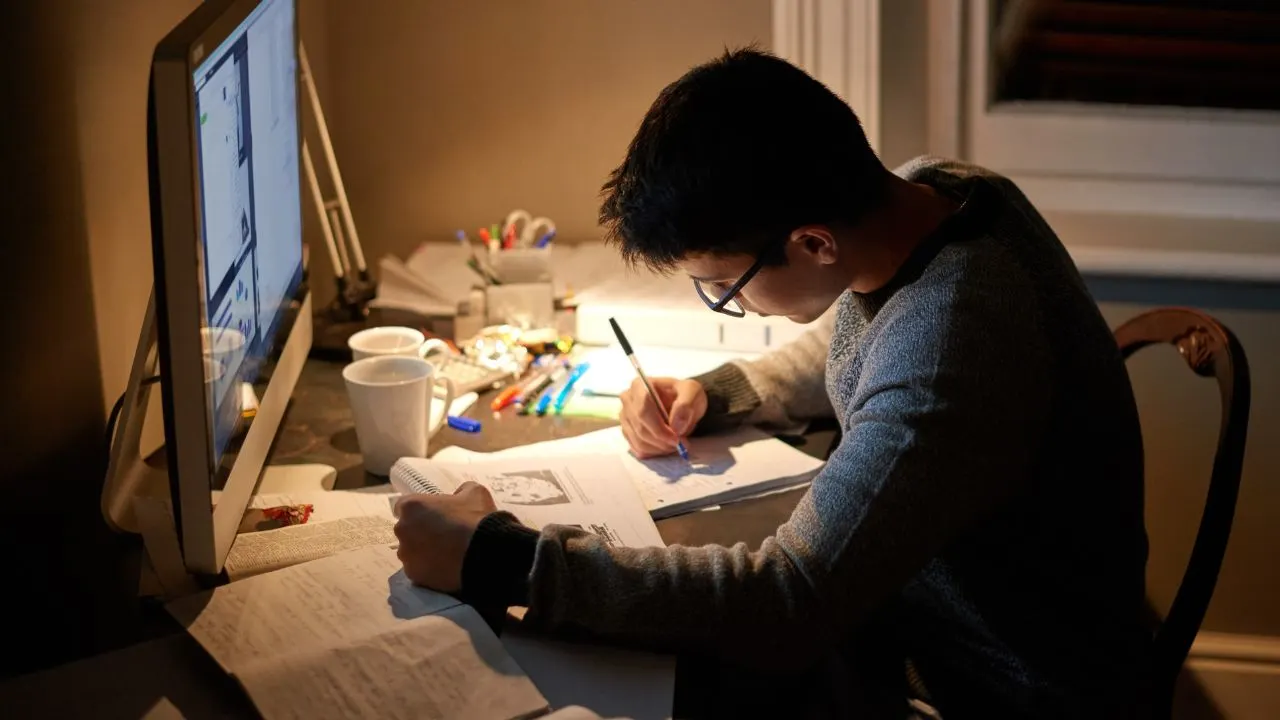
How to Study for Long Hours Without Getting Tired – Proven Methods
Most students struggle when they try to figure out how to study for long hours without losing focus. Long hours of study consist of much more than discipline; they are all about strategy, focus, and energy. Regardless of whether you are preparing for a competitive exam, for college tests, or just have inherent study goals. The ability to study for long hours efficiently is surely a skill that, once acquired, can revolutionize your academic journey.
Let’s face it. Most students cannot go for hours without losing focus. A little fatigue, a few distractions, or a small lack of motivation are usually enough to break consistency. For that reason, students must learn the art of studying for long hours and not getting tired.
Why It Matters to Learn to Study for Long Hours
You need to learn to absorb, comprehend, and retain information excellently in this competitive world. Such is the reality of preparing for exams like GRE NEET, UPSC,, or board exams; effective study sessions, staying consistent and focused, call for ranking the top scores.
Benefits of Studying for Long Hours:
- Better grasping and retention
- Concentration habits that Stick
- Stress before exams is reduced
- Time management is more efficient
What Are The Common Challenges Faced by Students when Studying For Long Hours?
Here are the common obstacles students encounter when studying for long hours:
- Mental fatigue and lack of focus after 2-3 hours.
- Distraction of mobile phones and social media.
- Bad posture and study setup are causing discomfort.
- Unhealthy snacking or lack of hydration.
- Studying too much at a time without any breaks leads to burnout.
This guide contains:
- Setting an ideal study environment.
- Preparation techniques before study.
- Smart ways to study very effectively.
- Importance of breaks.
- Dietetics and exercises for mental stamina.
- Common mistakes to avoid.
Let’s dive into it.
Creating Ideal Study Conditions Before Study
Your environment has a major impact on the amount and quality of study you can perform. It can drain your focus and motivation faster than you could imagine.

1- Find a Quiet Study Space Free of Distractions
In an apartment or library, find a corner that is quiet and isolated from distractions. Mute unnecessary notifications, as well as letting everyone around you know about your study hours, so that interruptions can be minimized.
2- Setting an Equally Productive Study Desk
The desk remains simple yet efficient. Elements for study that must be contracted and kept at hand include:
- Well-lit: It is preferable to study in natural light but multiple confines and strain may be encouraged by using a white or warm desk lamp.
- Tools of the trade: Pens, notebooks, sticky notes, water bottle, laptop or books—all there for easy access.
- Ergonomically correct: Just in case it becomes long-winded, prefer to sit on an ergonomically friendly chair, which gives solid support to your back.
3- Avoid Any and All Digitally Distracting Elements
Digital distractions can be the bane of concentration. Use apps like Forest or Focus To-Do to mute distractions and keep track of study time. If you can, leave your phone in another room. Your focus is your most valuable asset!
Before Engaging in Study Preparations for Students
Before diving into any study materials, devote a few minutes to setting your body and mind into the study mode.
-
Breathing Control (2-4 Minutes)
With closed eyes, inhale deeply, holding your breath for a second, then release it slowly. This will help put your parasympathetic nervous system into action and enhance your focus. Controlled breathing also increases the flow of oxygen to your brain for clarity and memory.
-
Set Intentions for the Day
Decide what you want to complete during this study. For example, “Today, I will finish two Physics chapters and revise one Math topic.” A clear goal gives your mind an idea about assistance and purpose.
-
Visualizing Your Study Goals
Visualization is a powerful technique in the mental arena. Picture yourself studying, completely focused, understanding all the concepts, and feeling confident in your successful advancement. This process then helps to reprogram your subconscious mind into believing that you are able and successful.
When your goals are seen clearly in your mind, that is the motivation for the brain to get the goal into action.
How to Smartly Study: Work Smarter, Not Harder
Prolonged hours of study are not equivalent to reading pages. Intelligent study is, obviously, understanding, retention, and self-examination.
-
Don’t Just Read-Understand and Test Yourself
Close your book after reading any section, and put into recall what they have learned. Afterwards, check one’s notes to see what was recalled. The greatest part about this active recall is that it lasts in long-term memory.
-
Take Simply Organized Notes
No need for messy or long notes. To condense or shorten: keywords or short summaries in diagrams that make quick, efficient revisions. Some tools, like Cornell Notes or mind maps, would be very good for visual learners.
-
Develop the Habit of Regular Revision
Revisions are effective in transferring knowledge from short-term memory to long-term memory. The Spacing Repetition Technique is very practical in this, whereby materials are reviewed after increasing intervals day, 3 days, 7 days, etc., for each one.
What is The Importance of Taking Small Breaks During Your Study Time?
Studying for hours continuously makes you lose concentration and leads to fatigue. You should apply the Pomodoro Technique: study for 25-50 minutes, break for 5-15 minutes.
What to Do During Breaks
Stretch your body, drink water, or walk during breaks. Avoid scrolling social media; it can drain mental energy. Recharge your mind with short breaks, improving productivity overall.

Importance of Diet & Exercise for Studying Long Hours
The brain needs fuel to function well. Everything you eat directly affects your focus, energy, and mood.
1- Foods that enhance concentration include:
- Nuts, seeds, and dark chocolate (rich in omega-3 and antioxidants)
- Fresh fruits such as bananas, apples, and berries
- Whole grains and oats provide energy sources for a longer duration
- Green leafy vegetables and proteins found in eggs or lentils
2- Stay Hydrated
Do not forget about water. Even the slightest dehydration may make you fatigued and unable to concentrate well. Drink water or herbal tea while studying, making sure to eat light foods and avoiding heavy greasy meals that might make one sleepy.
3- Do Half an Hour of Exercise Each Day
Simple movements keep the body as well as the brain active. A half-an-hour workout-all like brisk walking, yoga, or stretching-works for blood circulation and reduces stress hormones.
Exercise, together with the endorphins released, lifts spirits and sharpens concentration. After all, a healthy body carries a sharp and active mind.
When you study too long with no breaks, it backfires on you. Your brain needs some time off to process and store information. So, take breaks and ensure sound sleep.
What Are The Common Mistakes to Avoid While Studying?
-
Scrolling on Social Media
Checking notifications and scrolling through feeds between study session breaks will break the rhythm of your concentration. Keep all your devices away during study hours.
-
Multi-tasking During Study Sessions
Attempting to do multiple things all at once, especially while studying, can prove to be futile. Concentrate on a single subject at a time to feel it fully.
Setting unrealistic goals can cause frustration. Set daily targets realistically and never skip breaks: breaks are crucial for maintaining consistency over time.
In conclusion
Never forget that consistency is more important than intensity. Nurture your mind and body, and success will respond with big smiles.
Author Name: Ankita Thakker
Designation: Founder & CEO of Education Street






